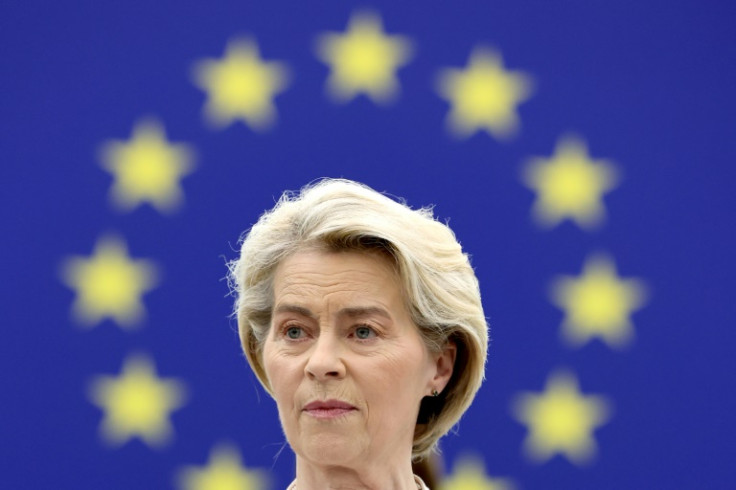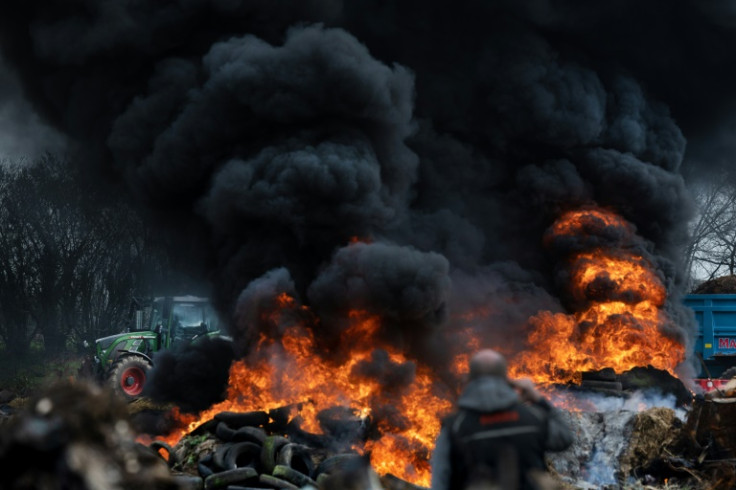EU Chief Meeting South American Leaders To Try To Close Trade Deal

European Commission President Ursula von der Leyen will meet leaders of South America's Mercosur bloc on Friday, aiming to push through a controversial pact to create the world's biggest free trade zone despite last-minute resistance.
Von der Leyen is hoping that the two-day summit in Uruguay with presidents from Brazil, Argentina, Uruguay and Paraguay will seal the deal that has been haggled over for decades.
The treaty, under negotiation since 1999, has proven divisive in Europe, where critics say it could lead to cheap imports and environmental impacts.
Von der Leyen's plans appeared in jeopardy after Italian government sources said Thursday that "conditions are not in place" for Rome to sign the accord, potentially giving naysayers in Europe the power to block it.
"Tariff cuts, simpler procedures, access to public contracts... All of this means so much more opportunities for jobs and growth in Europe," Von der Leyen wrote on social media, after arriving in Uruguay.
The deal would allow the EU to export cars, machinery and pharmaceutical products more easily to South America.
In return, Brazil and its neighbors would be able to sell meat, sugar, rice, honey, soybeans and other products to Europe with fewer restrictions.
A large majority of EU member states, led by Germany and Spain, are in favor of it.
France is leading European opposition to the agreement, joined by Italy and Poland.
With the Netherlands and Austria also expressing reservations, France appears close to securing the necessary backing to stop the deal from advancing.
The treaty aims to eliminate most import taxes between the EU and Mercosur to create a vast free-trade area of more than 700 million consumers.
But farmers in the EU fear the deal would see Europe flooded with cheap imports from countries where producers operate according to less stringent environmental, sanitary and labor standards.
A political agreement was concluded in June 2019 but never ratified amid concerns over the impact of Brazilian farming on climate change, among other factors.
A number of NGOs and left-wing activists believe that the creation of a vast free-trade zone will accelerate deforestation in the Amazon and worsen the climate crisis by increasing greenhouse gas emissions.
Sources familiar with the negotiations told AFP the deal would include changes to "several chapters," including government contracts, services, intellectual property and the environment.
French President Emmanuel Macron on Thursday repeated a warning to Von der Leyen that the agreement was "unacceptable in its current state."
The push by the EU and Brazil to get the deal done comes as Macron appears politically weakened after his government collapsed Wednesday in a no-confidence vote -- the first time a French government has been brought down by parliament in over 60 years.
Brazil's President Luiz Inacio Lula da Silva has shrugged off France's opposition, saying: "They no longer decide anything, it's the European Commission that decides."
Once a possible deal is signed with Mercosur countries, it will need to be ratified by at least 15 EU members representing 65 percent of the EU population, then by a majority in the European Parliament.
Ignacio Bartesaghi, a professor of international relations at the Catholic University of Uruguay, said it was important for Lula to "show some success in Mercosur" to fend off pressure from Argentina and Uruguay for Mercosur states to be allowed to cut bilateral trade deals outside the bloc.
Von der Leyen is planning a joint news conference on Friday with the presidents of Brazil, Argentina, Paraguay and Uruguay, EU officials told AFP.

© Copyright AFP 2025. All rights reserved.





















